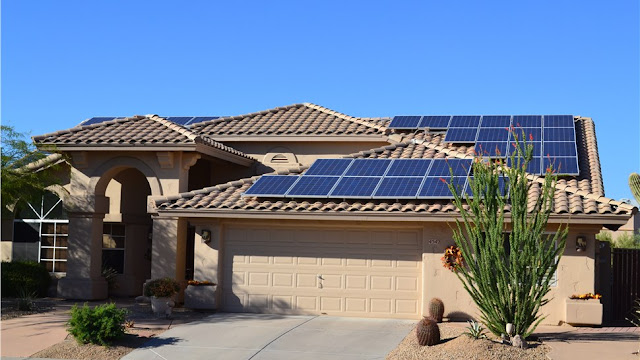There are many different factors that can influence the cost of solar panels. These include Price per watt, Brands, Labor costs, and the size of the system. It's important to understand the overall cost before deciding on a solar power system for your home. This will help you choose the best solar panel for your needs and budget.
You want to install solar panels, but you don’t know what the cost of solar panels is. The cost of solar panels depends on many factors – some of which you can control, and others that are out of your control.
1. Price per watt
The price per watt of solar panels can vary greatly depending on several factors. The size of the solar panel system, the manufacturer, and the location of installation will all affect the price. It is also important to remember that the average price per watt of solar panels is lower when you buy them in bulk.
Monocrystalline solar panels cost between $0.60 and $1.20 per watt uninstalled. This type of solar panel is the most expensive but also the most efficient. This type of panel contains cells formed from whole silicon crystals. This type of panel is more durable and efficient and may be installed with cells on both sides.
The price per watt of solar panels can vary by state. It is important to note that premium solar loans carry dealer fees, which can add between 10 and 25 percent to the cash cost of a solar system. In addition to these fees, premium panels can be more expensive than their non-premium counterparts. Premium panels are like premium cuts of meat; they are typically more expensive, so you may end up paying more for them up front.
2. Labor costs
Cost of labor for solar panel installation varies from state to state, but in general, the cost is around fifty cents per watt. There are several factors that can affect the total cost, including the state's average labor rate, the type of materials used, and the solar company chosen. According to the Department of Energy, the cost to install solar panels nationwide has decreased by over eighty percent over the past decade.
The cost to install one solar panel can range anywhere from $250 to $600, which does not include the cost of the inverter, batteries, and framing. In addition to wattage, the cost will also depend on the number of solar panels you choose. In general, higher-wattage panels cost more than lower-wattage panels.
The cost of installing solar panels will also depend on the characteristics of your roof. A complex roof will increase the installation cost. You should also consider the solar company's labor rates, as some charge more if the installation is urgent and you need the panels installed within a short timeframe. In addition, make sure to factor in interconnection fees and permits when determining how much labor will cost.
3. Brands
There are several brands of solar panels on the market. Some of these brands are made by Chinese manufacturers, while others are made by manufacturers in other countries. Typically, the best solar panels are manufactured by manufacturers that have long-term experience in the industry and a reputation for high quality.
Some of the top solar panel manufacturers include Panasonic, Solar NRG, With The Sun, and Energy Living. In addition to supplying top quality solar panels, these companies also offer guarantees and warranties.
Many brands make solar panels in the United States, including Panasonic, LG, and REC. However, you should know that you can purchase premium-quality modules from solar panel manufacturers outside of the United States. If you're not satisfied with the warranty offered by the American manufacturer, you can choose a module made overseas.
When selecting solar panels, make sure to find an installer with experience and accreditation. Choosing a certified installer is as important as choosing the right brand. An accredited installer can make a huge difference in how much energy your solar panels generate.
In addition, you should make sure that your panels are installed at the right angle and pointed in the right direction. When shopping for solar panels, don't get pressured by sales people. They'll often try to convince you that their brand is the best - even though that isn't always true.
4. Size of system
Choosing the right size of solar panel system is the first step in switching to solar energy. This decision determines how much roof space is needed, how much the system will cost to install, and how much energy you will save over its lifetime. A good solar panel installation service provider will help you select the perfect system for your home.
A good way to estimate how much energy you will generate with your solar panel system is to obtain a power bill from the home's current owner. This will help you determine how many panels you need to cover your typical daily electricity consumption. The average solar system in America produces around 7 kilowatts of energy. The more panels you have, the more power you will produce.
Final Words
There are some limitations on solar panel systems, such as the size of battery inverters. If your system is too large, you may be ineligible for the feed-in tariff. If you exceed the allowed size, you'll need to invest in additional grid protection technology. You can find more information about this through the feed-in tariff eligibility calculator on the right. You can also talk to your electricity retailer for more details.

